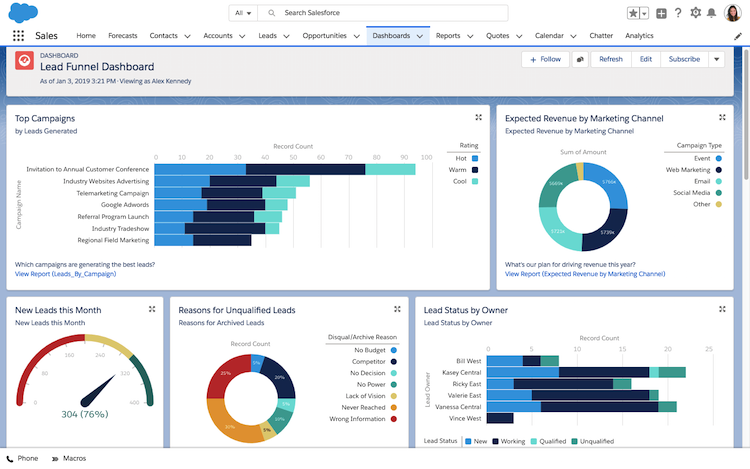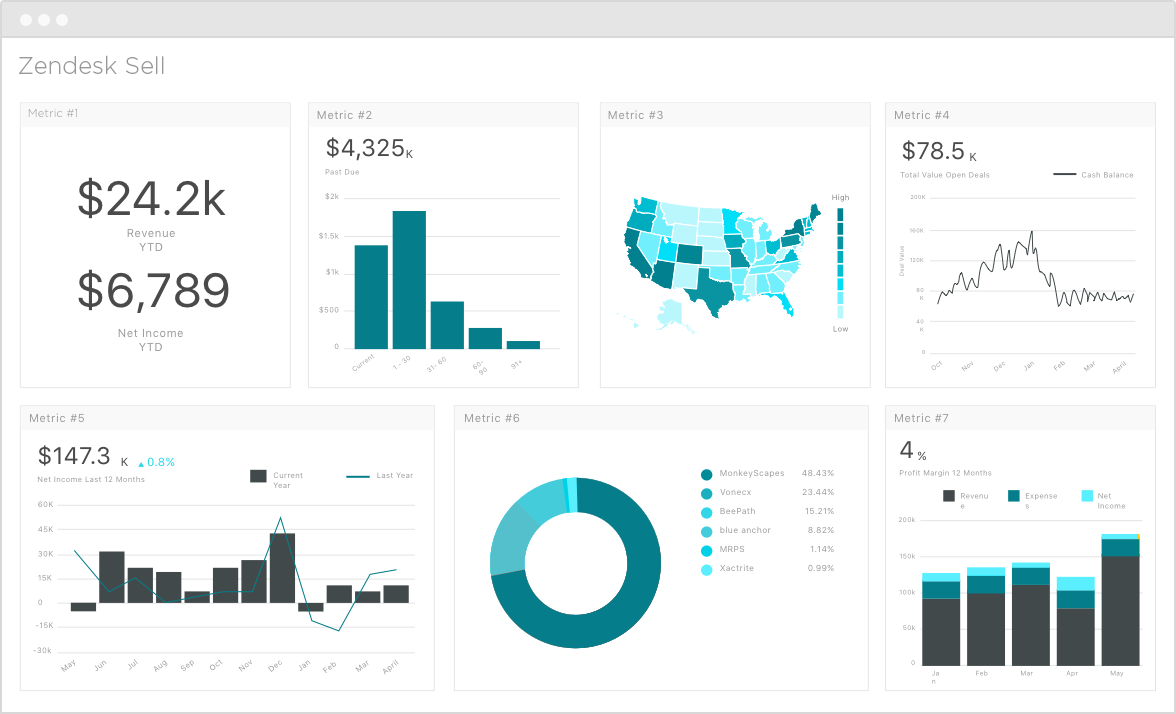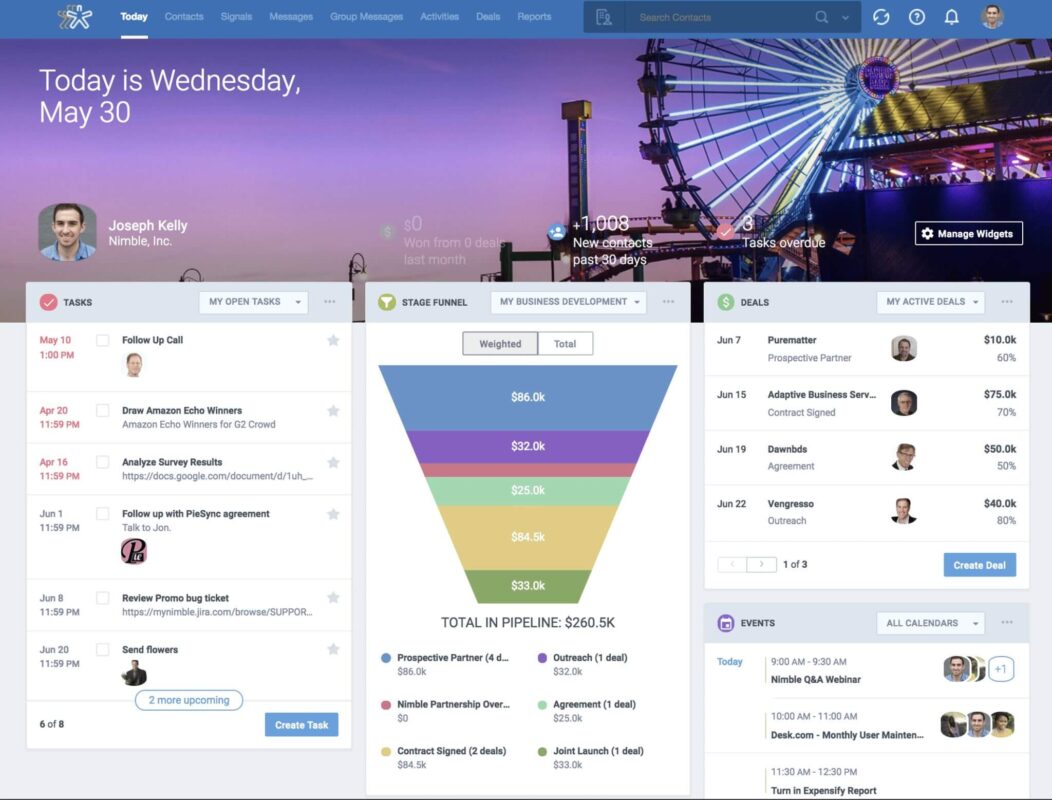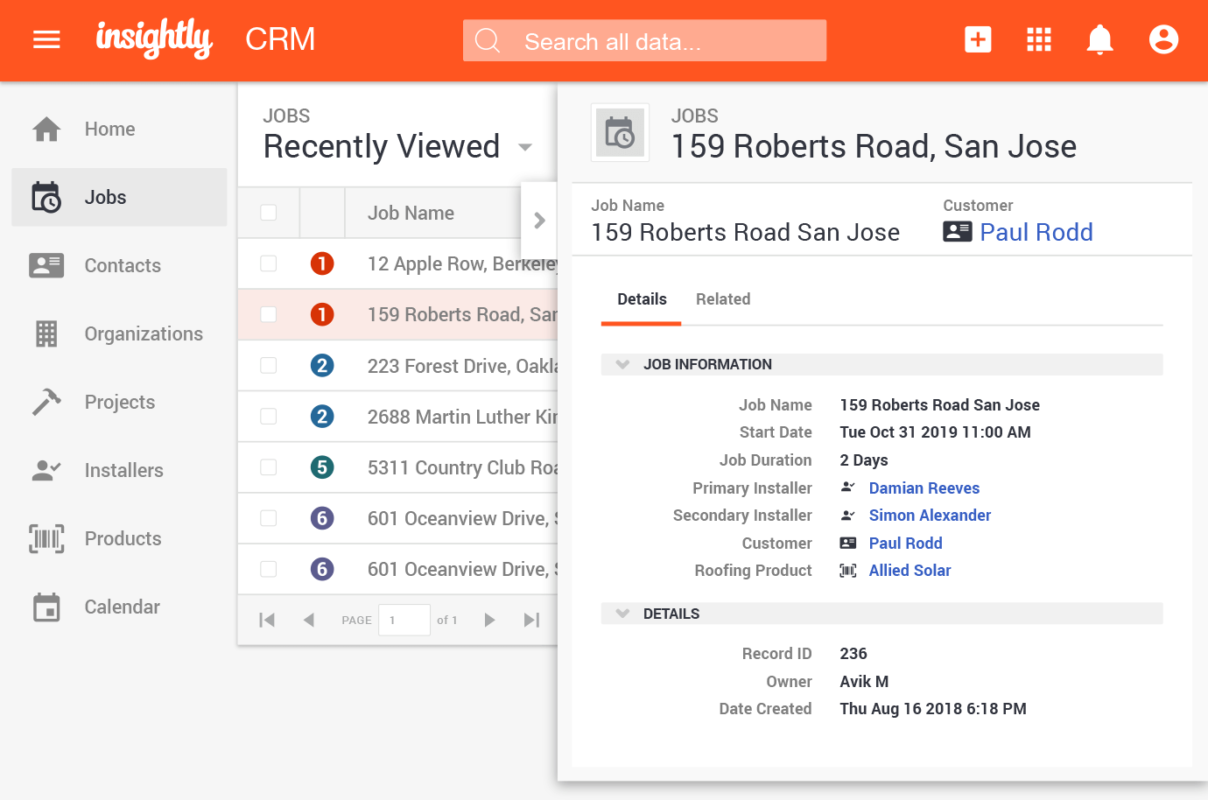CRM software have seen a drastic growth in the market with a rising shift towards the use of technology in business. According to a report by nucleus research, 91% of companies having more than 11+ employees are using CRM software. The research also proves that every dollar spent on CRM, gives an ROI of $8.71.
How has CRM software changed business civilization? You must have come across the benefits of using a CRM in business but may be confused in choosing the best option.
This guide is going to help you find the best CRM solution as we take you through all the different types of CRM and how to integrate them into your business.
What Are CRM Softwares?
CRM software is designed to help companies keep track of their relationships, manage sales and marketing processes, and deliver more efficient service. It functions as both a database and a productivity tool, providing a repository for contact/interaction data and workflow automation that help improve efficiency.
With such an important role of CRM Software in the IT business, there is no doubt that this software industry segment is growing rapidly and used by almost every IT industry to manage their business relations and sales.
CRM is now expected to reach more than $80 billion in revenues by 2025
In this buyer’s guide of CRM Software, we are going to discuss
- The different categories of CRM softwares,
- The best vendors into this niche,
- Current trends in CRM Software.
- And a few case studies to understand the scope of this tool.
Categories Of CRM Softwares
The CRM software are categorized into 4 categories.
- Enterprise CRM
- Mobile CRM
- Social CRM
- Small Business CRM
Let Us understand these categories in detail.
1. Enterprise CRM
There are a lot of variations in choosing a CRM tool for large-scale business, the enterprise CRMs comes with a lot of integrated features that have the ability to add features into the functionality of your CRM. These are generally inbuilt apps or addons that are purchased or upgraded to customize the dashboards of the enterprise-level CRM for business needs. These are also seen as developer toolkit that can be reformed by the in-house developer team to get a desired workflow and results as per business goals.
The Enterprise CRMs are more focused on the contact management system that is pre-defined for both inbound and outbound channels.
The automation channels are established to optimize the new as well as returning or old customers.
The Enterprise CRM tools also help the business in data analytics that is very important to study customer behavior.
It had been studied by researchers that four out of five companies are storing records of their customers to use them productively for the long term in their enterprise CRM data tool.
Enterprise CRM Market Leader: Salesforce

Salesforce has consistently been on the leader side of an enterprise CRM business. It is easily adaptable and saleable for large size businesses.
It was the first CRM tool that was based on the cloud and can be used with a monthly subscription model of payments.
The top-of-the-line enterprise version costs several hundred dollars per month, per user, which gets you the most comprehensive features package (custom app-building, mass email, customizable dashboards, webs service API, webchats, and more).
Comparable Product In Enterprise CRMs
If you are willing to check out some enterprise-level CRM then this could be your choice for choosing one out of them or try them all before getting them into the business.
2. Mobile CRM
Many enterprises and CRM products provide mobile compatible CRM tools, they are highly functional and adaptable for businesses in which the sales team has to go mobile or located remotely. There are also platforms specifically designed for mobile use. In industries where sales reps go to the clients— not vice versa—mobile CRMs are instrumental in keeping leads and client data organized and updated, keeping salespeople connected with management, and optimizing daily operations.
There are many Mobile CRM tools that are geofriendly and you can easily manage your remote sales team and coordinate with your potential leads to convert for your business.
Industries that commonly use mobile CRM include real estate, merchant services, and energy/utilities.
Mobile CRM Market Leader: Base, now under Zendesk

The base is a mobile-based CRM that has an enterprise CRM scaleable potential on its web-based solution. It provides a web-based all-in-one sales platform that features tools for email, phone dialing, pipeline management, forecasting, reporting, and more. Base’s platform is available on iOS and Android and was the first full native CRM Android app available.
Case Study
We studied a company named blue reef, which was spending around $ 15,000 every quarter on Salesforce and an additional $ 20,000 on consulting. Along with that, they need to manage spreadsheets to manage their sales pipeline.
They switched to Base, and spent less than $ 1000, Solutions Specialist Kane Rogers says they get the most use out of Base’s automatic call logging, email integration, and task automation features, and, best of all, they no longer have to double-handle data. “It’s “freaking awesome,” Rogers says.
Comparable Product In Mobile CRMs
The list is coming soon here.
Till then you can have a look at these CRM tools.
3. Social CRM
Do you know that social media has emerged as one of the benchmarking tools to identify the company as more trusted or scam? According to surveys,
93 percent of social media users believe, the company should have an online social presence;
Customers these days, not only want the business presence on social media but also engage with them. Community building is a new trend in customer relationship management.
Companies believe that only following the conventional methods of finding customer leads and segmenting them into hot, cold, etc leads is not enough. It is high time to follow them up on social media and find the brand emotion that is spreading online.
Under such needs, social CRM tools have started emerging which not only helps in interacting with all social media handles from a single dashboard, but also help in analyzing the kind of reputation that is being spread for a particular brand.
It’s difficult to predict who will become the market leader. Some of the CRM giants (SAP, Oracle, Salesforce) have bought out social app designers during the past couple of years.
Social CRM Market Leader: Nimble

Founded in the year 2009, Nimble is a cloud-based Instead of relying exclusively on traditional, predictable contact mediums (phone, email, IVR), Nimble includes social media, IM, and SMS in its “Intelligent Relationship
Management” platform.
Nimble offers social listening tools for all of the major social sites, as well as features such as contact importing, monitoring, social selling tools, and call-to-action notifications.
Case Study: B Squared Media
Based in Stanton, New Jersey, the company already tried Hubspot and Zoho CRM which didn’t match their needs with the budget.
They switch to nibble, based on the positive rating of the tool. Stellas, the lead of the small but fast-growing lean startup was looking for a tool that matches both their needs and budget. Nimble solved their problem as it was more robust. It reduced its sales funnel by 25%.
The tool was quite easy to use hence their entry-level sales team was able to use it without much knowledge transfer. Read the full case study here.
Comparable Product In Social CRMs
The list of these tools is coming soon.
Some Suggested tools are Nimble, Zoho, batchbooks.
4. Small Business CRM
A market full of “megavendors” like Salesforce and Oracle can be intimidating to small businesses that work in niche industries and have limited budgets. Some of these businesses simply can’t afford a product like Oracle. Others find the large feature sets of enterprise CRMs too complicated for their basic needs.
Luckily, there are many vendors that offer CRM systems built specifically with these businesses in mind. From industry-specific (retail, nonprofit, real estate, etc.) to generally more simple and affordable platforms, there’s an option for every small business.
Market Leader: Insightly

Insightly promotes itself as the “Number one free CRM for small businesses.” Of course, the free version only accommodates two users, so if your team is any larger, you’ll need a paid version. Even so, Insightly is a simpler, more affordable alternative for startups and small companies that need to manage the lead-to revenue process and basic marketing tasks. Insightly
Comparable Product In Small Business CRMs
You can also try mothernode, Salestrakr.
The full review of the above tool is coming soon.
Current Trends In CRM Softwares
Heading towards a technology-based future where AI and machine learning are dominating the businesses and software, it is evident that the trends in the CRM Software industry are changing. Let’s find some recent trends in Saas.
- More AI and Automation are improving the results of CRM tools.
- Self Servicing end to end customer tracking is being preferred by companies now instead of training sellers from scratch.
- More Saas based CRM will emerge that has automation focused on Social CRM as a definite add-on.
- Customer automated followups with targeting based on a marketing campaign that is 360, is expected to be seen as a feature in coming CRMs.
Making Your Final Decision
Now that you have a better picture of some specific CRM applications and vendors, it’s time to choose one for your business. Luckily, the “How to buy saas” team has already done the hard part for you. When you access our saas shop page, you’ll find organized information and reviews on 100+ different CRM solutions.












